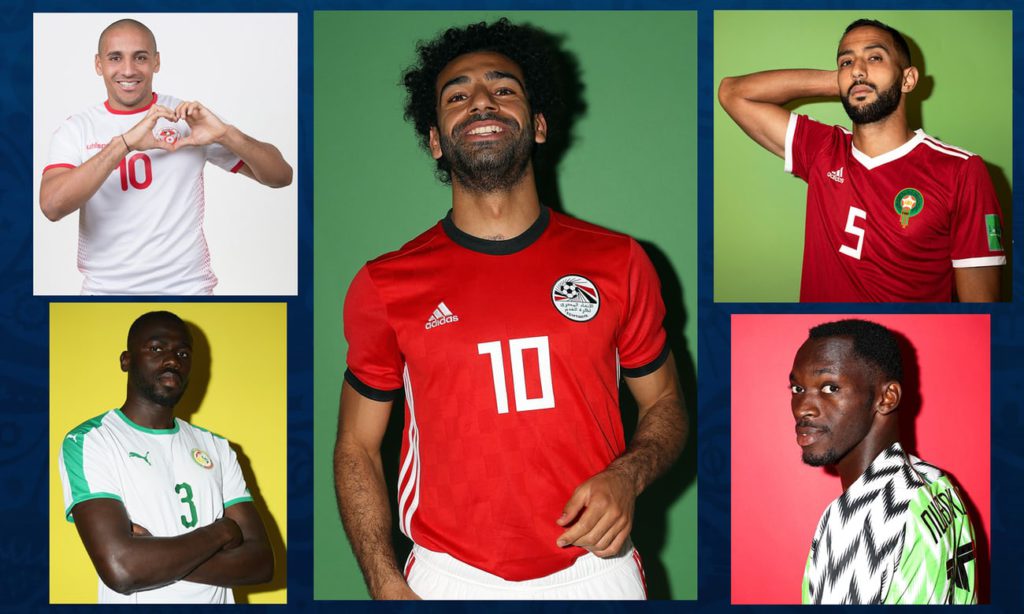Established powers used not to see African teams coming. That was the case literally in 1982, when West Germany’s manager, Jupp Derwall, decided against asking his squad to watch a video of Algeria before facing them because he feared his players would mock him for making the suggestion.
Some of those players had, after all, boasted publicly that they would score a hatful of goals and play the match with cigars in their mouths.
Algeria’s 2-1 victory over the European champions was a delicious lesson about the perils of hubris but also, to anyone willing to pay attention, about advances made by African teams. Tunisia thought they had made that point four years earlier when holding West Germany to a 0-0 draw (and beating Mexico) but apparently some folks needed telling more than once.
Africa’s other participants in 1982, Cameroon, also performed well but also failed to reach the next round even though they did not lose a match. But from the next tournament onwards, starting with Morocco in 1986, an African representative has always reached the knockout stages. Four years ago Algeria and Nigeria made the last 16, seemingly indicating increased strength in depth across the continent. This year the bar could be raised higher, with all five African countries capable of getting out of their groups.
On the flip side, there are grounds for believing this will be the first World Cup for 36 years in which every African team falls at the first hurdle.
Let’s explore the Afro-optimist view. For a start, it is worth noting that all African squads in Russia seem relatively happy. This week’s dissolution of the Ghanaian Football Association following the exposure of systemic corruption served a reminder that the efforts of many African players continue to be sabotaged by oafs and miscreants. However the signs are the quintet at the World Cup are in decent hands, which is to say, at least, that the risks of schisms over bonuses or extraneous botheration appear to be low. That already gives African teams an edge over, say, Spain.
Spain will meet Morocco, who are probably the most complete African team at this tournament and have been cast into the toughest pool. The Atlas Lions are a model of powerful unity under Hervé Renard, who has transformed them since taking charge two years ago.
Their tight defence is screened by Karim El Ahmadi and built around Juventus’s Mehdi Benatia, whose wiliness at centre-back has helped the Wolves midfielder Romain Saïss to adapt well to being his sidekick. Morocco did not concede a goal during the final six-game round of qualifiers.
Going forward they have players who can pick a way through any defence on a good day, particularly M’barek Boussoufa, Younès Belhanda and, above all, Hakim Ziyech, who is looking to bring to global attention the skills that earned him the player of the year award at Ajax last season.
Beating Iran on Friday seems essential if Morocco are to advance from a group that includes Portugal and Spain, neither of whom will find them easy to penetrate and both of whom could be vulnerable to counterattacks.
Senegal have plenty going for them, too, even if, like Nigeria, Tunisia and even the Egypt of the 45-year-old Essam El-Hadary, there are doubts about the reliability of their goalkeepers.
Few teams in Russia will have a better central defensive pairing than Kalidou Koulibaly and Kara Mbodji, assuming Mbodji has recovered fully from the injury that hampered him last season. Senegal’s spine is reinforced by a central midfield in which Badou Ndiaye’s influence is growing and Alfred Ndiaye has shown in recent friendlies that he could be an upgrade on Idrissa Gana Gueye, whose recent performances for his country have been glum.
On a solid platform Senegal could thrill although their manager, Aliou Cissé, has yet to prove he has found a way to harness fully the potential of gifted attackers such as Sadio Mané, Keita Baldé, Mbaye Niang and Ismaila Sarr. If they click, Senegal could swagger out of their group and trouble their opponents in the last 16. That could be England.
To get that far England will need a positive result against Tunisia, who will be no stooges. While not expecting to dominate possession their manager, Nabil Maâloul, has said his team will be daring and do more than simply try to absorb pressure. Last week’s friendly against Spain, in which Tunisia held their own until shrinking into their shells in the second half, underlined that audacity would be their best policy because Maâloul does not have good enough defenders to interpret catenaccio. Even though injury has deprived them of their most exciting creator, Youssef Msakni, Tunisia’s strongest players are slick attackers. They will aim to play against England and Panama on the front foot and could hurt both.
Egypt, by contrast, are likely to be cautious even though their group looks less dangerous. That will be especially true in their opening match, against Uruguay, for which Mohamed Salah has been declared fit. Without Salah Egypt are marvel-less. Russia and Saudi Arabia are no great shakes either and Salah can be expected to torment them.
Nigeria have real qualities: dynamism, power and sharpness up front if Simy Nwankwo makes an impact in place of Odion Ighalo. But they also have flaws, notably in goal and defence, and they lack the ingenuity of previous Super Eagles sides so while they should crush Iceland, they look unlikely to finish ahead of Croatia and Argentina even if they beat the latter in a friendly in November, when Lionel Messi was absent. For them, too, reaching the knockout stages looks improbable. But not impossible.
All five of the African countries, then, can find reasons to be confident of venturing beyond the group stage, where there could be an unprecedented contingent from the continent. But that is unlikely. Even less likely is that any of them will become the first African country to reach a semi-final.
Source: The Guardian

